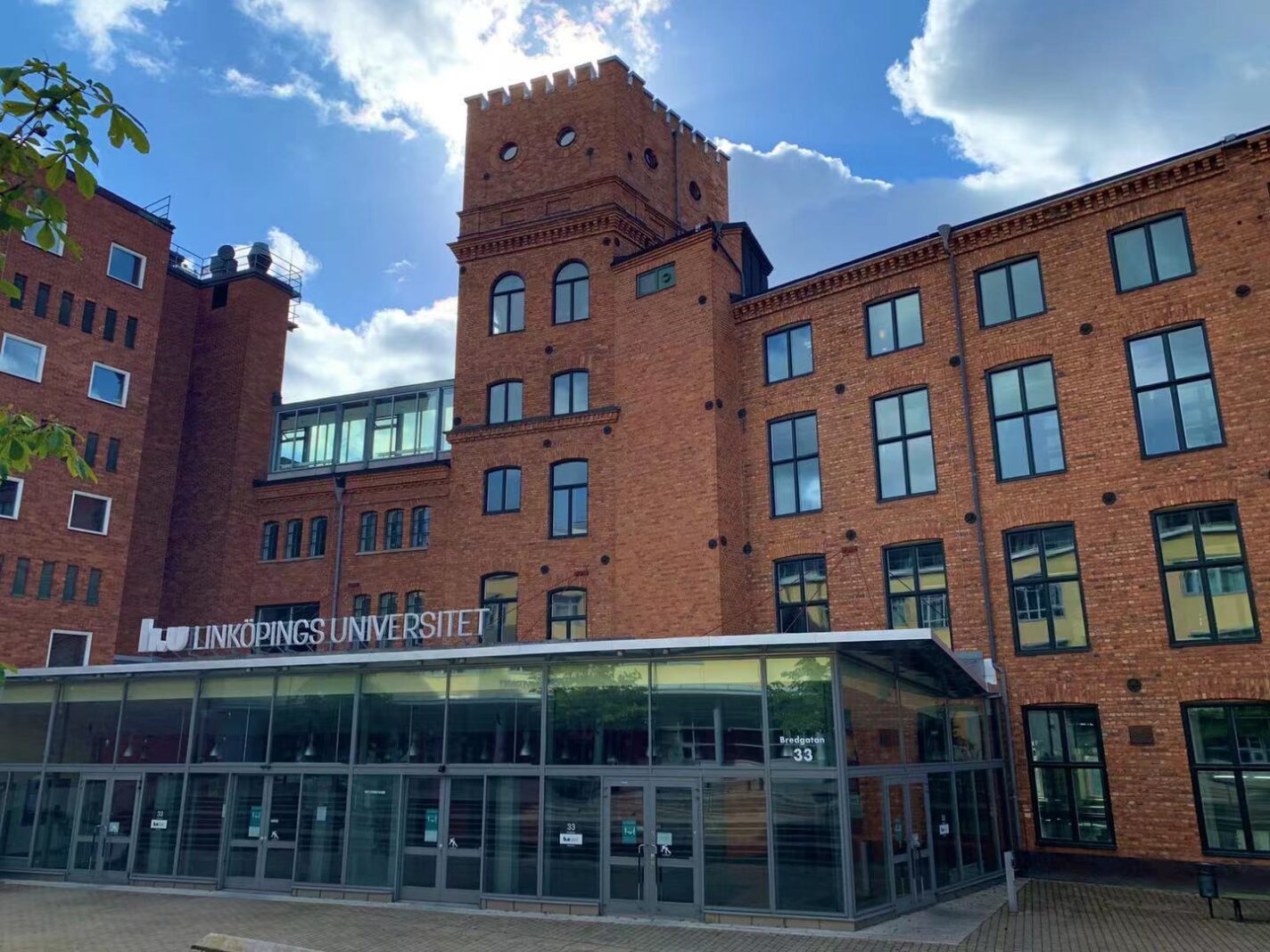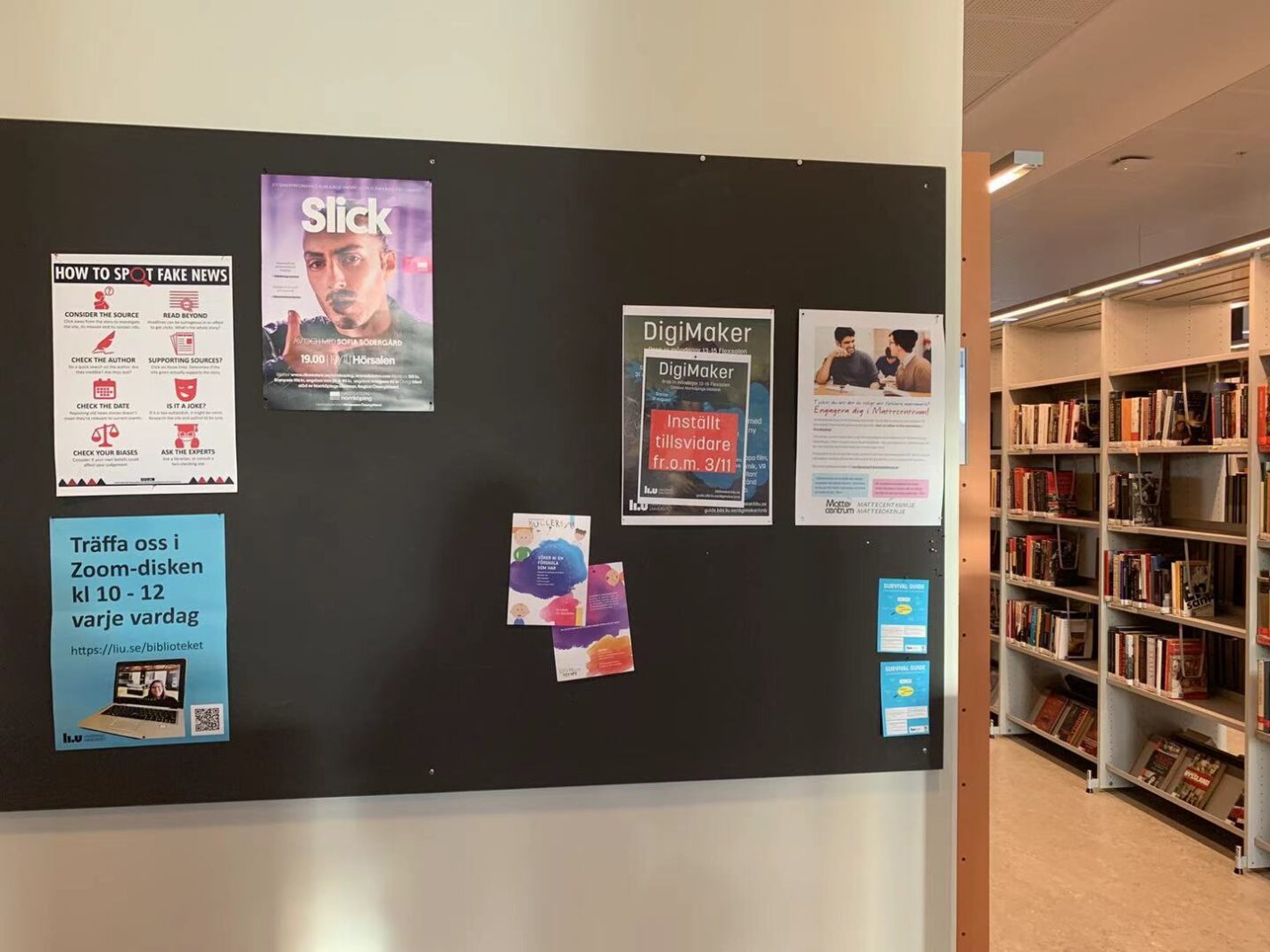April 26, 2021
What should you prepare for Computational Social Science Programme
Congratulations to newly admitted students in Computational Social Science. As you already know, this is an advanced discipline using statistical and computational methods to understand society and human behaviour. This article tells about what you should prepare for this programme, especially for the first semester. We currently decide that the autumn semester will be on campus, which requires you physically be here.

LiU campus main building (Kåkenhus) in Norrköping
Arrange your accommodation
Information can be found on the Accommodation webpage for admitted master’s https://liu.se/en/article/accommodation. Students must find accommodation on their own. We strongly advise that they start looking for accommodation early on, as the housing situation is very pressed in the autumn. Computation Social Science is based in Norrköping campus, so it is advisable that you apply for accommodations located in Norrköping. The housing company StudentBo offers corridor rooms and flats close to the city center and Norrköping Campus. Here is the specific website https://www.hyresbostader.se/CM/Templates/Article/general.aspx?cmguid=00f0bf7e-15de-4016-b033-13e5275fad00. You need to sign up an account, which is free of charge, then you start collecting points (1 queue point per day). Later you can see available accommodations and then register your interest. When your qualification meets the requirements (eg. Queue points and admission letter), StudentBo will sent you a contract. You can also choose to live in Linköping which has another accommodation websites for your to register.

Environment around my accommodation
Roll call attendance and registration
The roll call to this program is set for August 24th, 2021, at 10:15, at Norrköping campus – building Kopparhammaren 2, KO 12. You have to be physically present for this roll call. If you are unable to attend, you should contact our course director. If you are not present at the roll call and you have not contacted the course director, you might lose your place in this programme. Before courses start, you also need to come to the info center to register your account and get your LiU ID card so that you can access university facilities and services, and login Lisam and Ladok. You need to register your courses in Ladok so that you can start taking course. Teachers will present important course information in Lisam.

After roll-call and registration, I went around nearby.
Computational method – R programming
We mainly use R programming as the primary language through the whole programme. Therefore it is very necessary for you to know basic knowledge about R programming. For those who do not have previous programming experience, this will be tricky in the beginning, so you are highly advised to learn basic R programming before the programme starts. Our course director shared some self-study material with us, and you will also receive around in June. You can also use online-course platform such as Coursera to self study R programming. We mostly work with R through RStudio. Both of them are free of charge when you download them.

LiU library Norrköping campus, to borrow R programming book
Probability and Statistics
Probability and statistics are the first course you will learn in CSS. We use the literature Blitzstein, Joseph K., Hwang, Jessica, (2019) Introduction to Probability. 2nd. After each course, you will be offered a related R programming lab to help you better understand what you learn. This course content mainly include sets, combinatorics, probabilities, random discrete variables, expectations, continuous random variables, confidence intervals, univariate hypothesis testing, and computational alternatives.

Doctoral thesis wall, a special wall at LiU, including many statistics and computer science fields
Social Science Discipline
For students who are new to social science, it will also be challenging but interesting. You will get to know how social phenomena linked with statistics and data, and how computational approached can help you understand the complex social processes. It is significant for you to build a critical thinking in this field. CSS social science courses usually consist of lectures and seminars. When you read a social science article, try to know what is the original question and the central question, what is the author’s answer or argument, how do the authors go about finding the answer, how do the author check the credibility and validity of the answers and so on. I recommend two related books here.
Martin, J. L. 2017. Thinking through Methods: A Social Science Primer. Chicago: University of
Chicago Press.
Hechter, Michael & Christine Horne (2009) Theories of Social Order: A Reader (2nd edn). Stanford, CA: Stanford University Press.

LiU campus in Norrköping
Linear Regression Modelling
After you have basic knowledge in R programming, you will move to linear regression modelling, with a special emphasis on causal inference and methods to using observational data. Before our programme starts, you can self learn some matching techniques, including OLS-regression, fixed effects methods, instrumental variables and difference-in-difference, and Monte Carlo simulations. Here I recommend a book: Gelman, A & Hill, J. Data Analysis Using Regression and Multilevel/Hierarchical Models. Cambridge University Press.

Library is a great place to find books about various modelling to have a solid understanding
Hope you have a nice summer!



